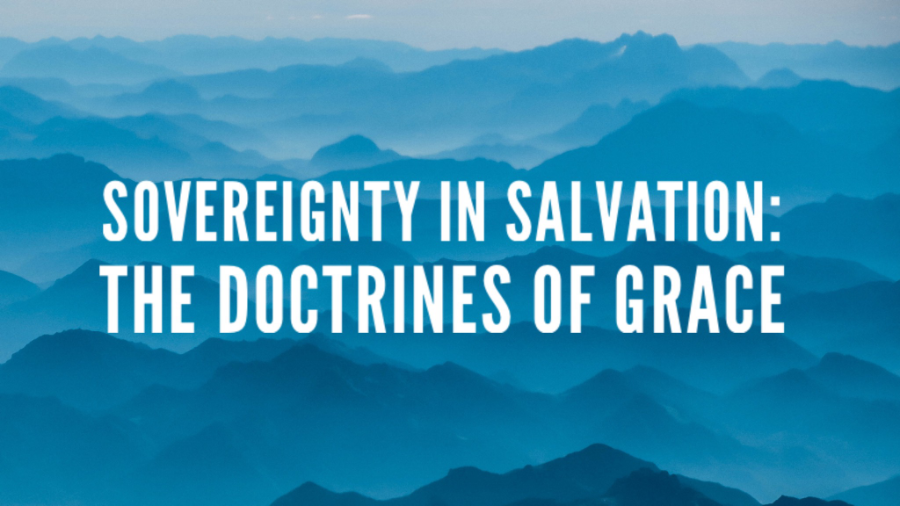Over the past few weeks, we have done the work of searching the Scriptures to see what the Spirit-inspired writers had to say in regards to the doctrine of election, and we have found many great truths. To recap what we covered: God has elected those whom He foreknew in eternity past, and He has predestined those whom He elected to receive the eternal blessing, all made possible through the finished work of Christ. Throughout history, God has always had His own special people on whom He lavished His lovingkindness and grace, while passing over all the others whose names are not written in the Lamb’s book of life. Election is a doctrine that many dear saints have struggled with through the centuries, including many believers today.
In our American evangelical culture, for instance, we have become so accustomed to extra-biblical practices such as praying the sinner’s prayer, signing “connection cards”, altar calls, and “asking Jesus into our hearts”, that we have become deeply influenced by consumerism and emotionalism. As a result, we have allowed our experiences to determine our theology rather than the other way around. Is it no wonder then, that when we are faced with a doctrine such as election -- which forces us to recognize our own utter inability to contribute anything to our salvation except for the sin that made it necessary -- that we tend to cringe and protest? Jesus plainly said, “...apart from Me you can do nothing” (John 15:5). Yet how often do we, in our flesh, want to replace those words with, “Do your best and God will do the rest”? It’s long past time for the churches in America to put away their consumerism and emotionalism and bring forth sound Bible teaching, so that more and more Christians can hear the beautiful, gospel-saturated truth concerning their election and predestination and be comforted, just as the writers of Scripture intended!
There are many other evangelical believers, however, who want to cry foul when it comes to election because of how they think it hinders evangelistic endeavors. In fact, many non-reformed Christians take issue with election specifically because they believe that it nullifies the importance and purpose of missionary work. They will raise objections such as, “Why bother preaching the gospel to someone if they may not even be one of the elect?”, or “If God is sovereign and knows all things, and has already predetermined in eternity past who the elect are, then why bother evangelizing?” These are very fair questions and much more can be said in response, but for now I will briefly mention a memorable quote that deals with that very issue. Often attributed to Charles Spurgeon, the quote reads as follows: “If God had painted a yellow stripe up the backs of the elect, I’d go through London lifting up coats and preaching only to them. As it is, He has not, so I preach the Gospel to all, and God brings His sheep.”
It is important to note that election and evangelism are both taught in Scripture and are by no means mutually exclusive. In fact, to study election is to actually get at the very heart of what evangelism is all about! Why do we evangelize? Because we are called to proclaim the gospel to the ends of the earth, so that those who are lost may be found in Christ. But the Bible has a very specific definition of “those”, and Jesus Himself described who they are in John 6:37 when He said, “All that the Father gives Me will come to Me, and the one who comes to Me I will certainly not cast out.” The “all” in that statement is referring to all of God’s elect whom He chose for Himself before the foundation of the world. Our evangelism is the means God has chosen to bring about regeneration in the hearts of those whom He foreknew. We are concerned for all the lost sheep out there who remain under God’s wrath, and God is demonstrating great patience in relenting on bringing His fiery judgement on the whole earth until after the last elected person receives salvation. As the apostle Peter wrote, “The Lord is not slow about His promise, as some count slowness, but is patient toward you, not wishing for any to perish but for all to come to repentance” (2 Peter 3:9).
There are other Christians out there who may intellectually affirm the doctrine of election, but have extreme difficulty applying it, especially when it comes to the area of assurance. A common question asked by such struggling saints, more often than not in the quietness of their own hearts, goes something like this: “How do I know that I am one of the elect? What if I am not, and my profession of faith isn’t genuine?” Dear saint, if you have ever found yourself asking that kind of question, take heart! You are in good company. The very fact that you are concerned about your election in the first place is a good indicator that you are saved and therefore numbered among Christ’s sheep. When we study the broader context of Romans 7-11, we begin to see Paul’s purpose for teaching about our election according to God’s eternal decree. God wants us to have joy and assurance even in the midst of our struggle against the flesh, knowing that “…there is now no condemnation for those who are in Christ Jesus” (Romans 8:1). Be encouraged by the fact that the apostle himself once walked in your shoes as he too warred against his sin, yet he was reminded of what Christ has done for him. Now it is true that we must be careful in our Christian walk to constantly guard ourselves by not letting our election become a source of complacency or ensnarement, and it is precisely for this reason that we have the reminders that we have, such as, “Work out your salvation with fear and trembling” (Philippians 2:12), “Test yourselves to see if you are in the faith” (2 Corinthians 13:5), and “…be all the more diligent to make certain about His calling and choosing you” (1 Peter 1:10). But when we have a proper understanding and response to what the Bible teaches concerning our election, it will inevitably grow us in godliness.
In conclusion, the doctrine of election is a wonderful teaching of Scripture that the Holy Spirit intends to use in your life to actually be a fruit-bearing Christian. It is not intended to be mere head knowledge, for that kind of knowledge can only puff up (1 Corinthians 8:1); it is there to bring us to our knees in humility, recognizing that we are what we are solely on the basis of God’s grace in choosing unworthy sinners such as us. None of the saints of the Old and New Testaments were ever chosen on the basis of anything they did or any decisions that they made, and neither were we. May our takeaways from this series stir within us an even greater desire for pursuing holiness and Christlikeness.

